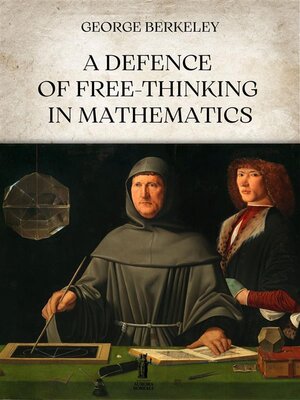
Sign up to save your library
With an OverDrive account, you can save your favorite libraries for at-a-glance information about availability. Find out more about OverDrive accounts.
Find this title in Libby, the library reading app by OverDrive.



Search for a digital library with this title
Title found at these libraries:
| Library Name | Distance |
|---|---|
| Loading... |
George Berkeley (1685-1753) was an Irish philosopher, an anglican bishop and one of the three great British empiricists along with John Locke and David Hume. Ignored and derided in life, he is now widely re-evaluated and considered as a sort of indirect precursor of Ernst Mach, Albert Einstein and Niels Bohr for his thesis on the non-existence of matter and the impossibility of an objectively absolute time and space. His critiques of mathematics and science are among the most controversial, brilliant and revolutionary in the history of philosophy.
The Berkley's essay A Defence of Free-Thinking in Mathematics was written and published in 1735 in response to criticisms of The Analyst in Geometry no Friend to Infidelity; or a Defence of Sir Isaac Newton and the British Mathematicians, by "Philalethes Cantabrigiensis" (Dr. James Jurin, a noted Cambridge scientist and physician), and Vindication of Sir Isaac Newton's Principles of Fluxions, by Jacob Walton. Berkeley responded to a subsequent pamphlet of Walton with Reasons for not replying to Mr. Walton's Full Answer.
The Berkley's essay A Defence of Free-Thinking in Mathematics was written and published in 1735 in response to criticisms of The Analyst in Geometry no Friend to Infidelity; or a Defence of Sir Isaac Newton and the British Mathematicians, by "Philalethes Cantabrigiensis" (Dr. James Jurin, a noted Cambridge scientist and physician), and Vindication of Sir Isaac Newton's Principles of Fluxions, by Jacob Walton. Berkeley responded to a subsequent pamphlet of Walton with Reasons for not replying to Mr. Walton's Full Answer.







